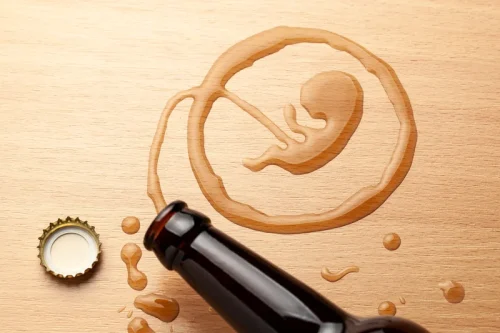
Others might develop a tolerance for alcohol over time and need more of it to feel its effects. Higher tolerance can lead to higher levels of drinking, which can have negative health effects. Since alcohol affects multiple major organ systems, drinking in excess increases the possibility of health problems in all parts of the body. High tolerance also increases your risk for dependence and addiction. We often toast to special occasions, and that glass of red wine may even have health benefits. If you’re aware of the risks, you’re generally fine to drink alcohol in moderation.
Myth #1: I Do Not Have a Problem Because I Can Hold My Liquor
So if you have chronic pain, it’s best to put down that drink. Alcohol tolerance is when drinking the same amount no longer produces the same level of buzz. Because your brain has adapted to the effects of alcohol, you need to drink more alcohol to https://ecosoberhouse.com/ achieve the same effects. Problem drinking isn’t about what type of alcohol you drink, nor is it about on which days you drink. If you or someone you love is binge drinking every Friday and Saturday night, it could signal a problem with alcohol.
MYTH: Teens in Europe drink earlier and they do fine.
It’s a legitimate illness that affects millions of people worldwide. Shaming or confronting someone with addiction rarely leads to positive change. In fact, it can often worsen the situation and drive them deeper into isolation. Diabetes was recently named “a defining disease of the 21st century” by the medical journal The Lancet.In the United States, … We can’t then get frustrated with those people because we built out a cultural norm around it,” he says.

MYTH: Every teen has the same chance of forming an alcohol use disorder.
Drinking responsibly doesn’t just come down to the amount you consume, but also how you consume it. You may hear a lot of tales around how to make drinking “easier” or “healthier,” but in reality, there aren’t any shortcuts or magic tricks out there. That’s why it’s best to consume alcohol safely and in moderation — without buying into any myths.
Beer Is Just as Intoxicating as Other Alcoholic Beverages
- Some folks think of light beer as healthier because it tends to contain fewer calories and a slightly lower alcohol content.
- But some of the hype has gotten a little out of control, so we’ll sort out the reasons you should be drinking green tea — and debunk the most common myths about the tasty brew.
- It takes about 2 hours for the adult body to eliminate the alcohol content of a single drink, depending on your weight.
- It’s also found in many prescription pain relievers, such as Percocet and Vicodin.
Below, let’s debunk some common alcohol myths and share some science-backed truths to consider—before you decide to order that next cocktail. Whether you’ve harbored some of these misconceptions about alcohol, of find that you or a loved one have a troubling pattern of drinking, Recovery Centers of America can provide lifesaving help now. For your consideration, here are some of the services offered by our world-class facilities. At any stage of alcoholism, you can be successful if you seek alcohol addiction treatment.
Alcohol Myth #2: Mixing Different Types of Alcohol Increases Intoxication
If you need to avoid feeling sluggish the next day, you might want to switch out some of those darker drinks for lighter versions. If you or someone you know is struggling with alcoholism and needs guidance and support in their recovery journey, reach out for help. The Retreat offers a non-clinical, mutual-help approach to the problem of alcohol and drug dependency.

Similarly, the physical volume of different alcoholic beverages may vary, but the actual alcohol content determines the effect on the body, regardless of whether they are mixed or taken separately. There are purported benefits, as well as pitfalls, to consuming alcohol. Once it enters your system, it triggers immediate physiological changes in the brain, heart, and liver, among other organs.

For some people it’s a substance that can cause irreversible harm, for themselves and their families. But according to experts, it isn’t the order in which you consume your myths about alcoholism drinks that matters. But the amount of alcohol you’ll need to drink to relieve chronic pain is likely more than the recommended guidelines for safe alcohol consumption.
Busting Common Myths About Alcohol
Call us today to speak with a Recovery Advocate for free about your treatment options. All types of alcoholic drinks and beverages have the same active ingredient, and all standard drinks contain the same amount of alcohol. While the sleep-inducing effect of booze can help you drop off at first, alcohol suppresses Rapid Eye Movement (REM) sleep which can make for a less restful slumber overall. Drinking alcohol before bed also means trips to the bathroom are inevitable, as alcohol is a diuretic. Another side-effect you’ll experience is sweating more, adding to the dehydration. This is the perfect cocktail to have you waking up feeling sleepy and with a sore head and might leave you wondering if that night cap was really worth it.
- You don’t necessarily need to be drunk for alcohol to affect your decision making abilities.
- Being able to have a few drinks without feeling any effects may seem like a good thing.
- The risks of a fatal crash for drivers with positive BAC compared with other drivers increase as the BAC increases, and the risks increase more steeply for drivers younger than age 21 than for older drivers.
- We know much more about the effects of alcohol today than in the past.
